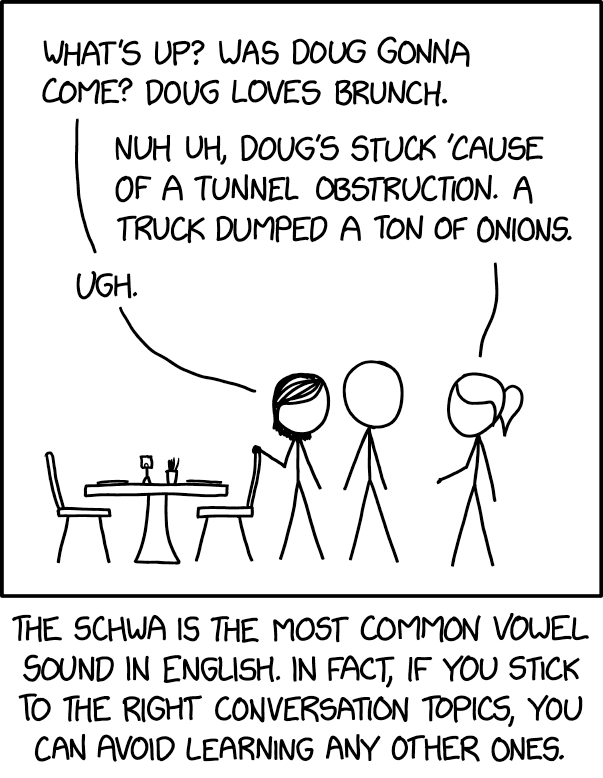this post was submitted on 16 Mar 2024
570 points (97.5% liked)
xkcd
8872 readers
217 users here now
A community for a webcomic of romance, sarcasm, math, and language.
founded 1 year ago
MODERATORS
you are viewing a single comment's thread
view the rest of the comments
view the rest of the comments

/wɒts ʌp? wʌz dʌg gənə kʌm? dʌg lʌvz bɹʌntʃ. nʌʔʌ dʌgz stʌk kɒz ɒv ə tʌnəl ɒbstɹʌkʃən. ə tɹʌk dʌmpt ə tʌn ɒv ʌnjənz. əχ./
For me it's more like
/wɒts ʌp? wɒz dʌg gənə kʌm? dʌg lʌvz bɹʌnʧ. nɜːʔɜː dʌgz stʌk kʌz ɒv ə tʌnəl əbstɹʌkʃən. ə tɹʌk dʌmpt ə tʌn ɒv ʌnjənz. əχ./
(Gimsonian, anyway, I like the newer, more logical style that would have nurse be /nəːs/)
Interestingly, "ʌ" is not used in many American linguistics sources, from Merriam Webster to Google Translate. In American English and many dialects of British English (and many others), there is little to no difference between 'ʌ' and 'ə.' I believe 'ʌ' is considered an allophone of 'ə,' which aren't always listed for vowel sounds in IPA.
The distinction is called the comma-strut split (referenced in the xkcd explainer), and occurs in a minority of English dialects apparently. I didn't realize Australian English was one of them! Cool.